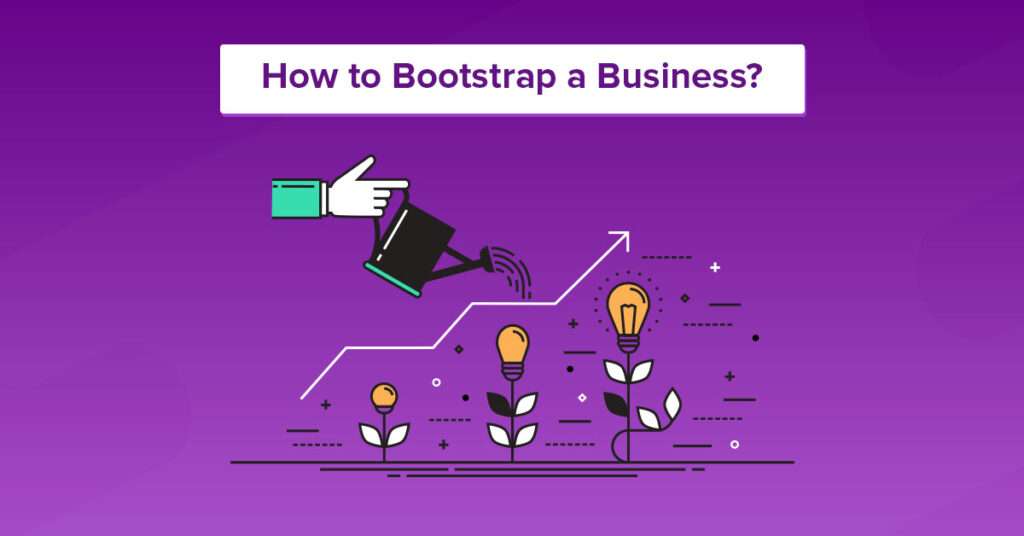Why Tier 2 & Tier 3 Metropolises Are Becoming the New Startup Playground
Entrepreneurship is rapidly expanding beyond India’s traditional metro cities with Bootstrap. Here’s why Tier 2 and Tier 3 cities are proving to be fertile ground for bootstrapped startups:

1. Lower Cost of Living and Business Operations
- The cost of running a business in Tier 2/3 cities like Bhopal or Surat is far lower than in metros like Mumbai or Bengaluru.
- Entrepreneurs save significantly on office space, salaries, utilities, and overheads, enabling them to stretch their budgets further.
- This low-cost environment is ideal for bootstrapped startups that need to operate lean and efficiently.
2. Presence of Underserved and Niche Markets
- Many Tier 2 & 3 cities lack access to advanced services, quality products, or modern tech.
- Local entrepreneurs understand regional pain points deeply and can offer customized solutions that urban startups might overlook.
- These underserved markets provide a competitive advantage and early traction opportunities.
3. Rise of Local Startup Ecosystems
- Government-led initiatives like Startup India and state-specific schemes are actively encouraging entrepreneurship in small towns.
- The growth of local incubators, coworking spaces, and regional accelerators is helping new ventures thrive outside metros.
- Many policies offer grants, mentorship, and tax incentives to support rural and semi-urban founders.
4. Availability of Skilled Yet Affordable Talent
- The rise of engineering, management, and vocational colleges in smaller cities is creating a vast pool of educated, job-ready youth.
- Founders in Tier 2/3 cities can access dedicated talent at a fraction of the cost compared to metro hiring.
- These professionals often prefer to stay in their hometowns, reducing employee attrition.
5. Enhanced Digital and Tech Infrastructure
- Digital access has dramatically improved thanks to affordable smartphones, faster mobile internet (Jio), and UPI-based payment systems.
- Even remote towns are now connected to national and global markets through e-commerce and digital platforms.
- Entrepreneurs can run full-scale operations using tools like WhatsApp Business, Shopify, Canva, and Zoho, with minimal investment.
Top Features of Bootstrapping in Business

Let’s explore the ten most defining features that contribute to the long-term success of a bootstrapped startup:
1. Founder-Funded & Self-Reliant
- Startups are built using personal savings or small loans from friends or family.
- This encourages early financial discipline and resourcefulness.
2. Revenue-First Growth Model
- With no external funding, businesses are built to generate revenue from Day One.
- Profitability becomes a priority—not just valuation.
3. Lean and Agile Innovation
- Limited resources force founders to innovate smarter and test faster.
- Minimum Viable Products (MVPs) and continuous customer feedback drive product development.
4. Full Control & Ownership
- Founders retain 100% equity and decision-making power, allowing full focus on vision without investor interference.
5. Customer-Centric Focus
- Without pressure from VCs, bootstrapped ventures focus entirely on delivering value to customers.
- This leads to stronger relationships and brand loyalty.
6. Strong Financial Discipline
- Every expense is closely monitored and justified, leading to efficient operations and sustainable growth.
7. Gradual but Sustainable Scaling
- Bootstrapped businesses grow slowly but steadily, often with deeper market insights and customer retention.
8. Resilience During Market Crises
- In tough times, bootstrapped startups can adapt and survive better than VC-dependent startups due to lean structures.
9. Local Roots, Global Vision
- These ventures often start by solving hyperlocal problems, later expanding nationally or globally while staying true to their authentic roots.
10. Social and Environmental Responsibility
- Many founders from small towns integrate community values, sustainability, and ethics into their business models from day one.
Real-World Examples of Bootstrapped Startups from Smaller Cities

Example 1: SaralKart – Kanpur
- Began during the COVID-19 lockdown to deliver essentials locally.
- Launched with ₹30,000 using WhatsApp and local delivery agents.
- Now serves over 5,000 households across two districts, fully bootstrapped.
Example 2: ThreadRoots – Jaipur
- A fashion startup promoting Rajasthani handloom, connecting artisans to customers via Instagram, Etsy, and Shopify.
- Started with ₹50,000 and now exports globally, employing 60+ rural artisans.
Example 3: CodeVerse – Bhubaneswar
- Started as a local coding academy with hybrid teaching models.
- Has now trained 12,000+ students and operates entirely online—without external funding.
These stories prove you don’t need VC backing or a metro location to build a successful business.
Common Challenges Faced by Bootstrapped Startups in Tier 2 & Tier 3 Cities
Despite the momentum, founders in smaller cities face several unique challenges:
1. Limited Access to Early-Stage Mentorship
Opportunities for expert guidance are harder to come by outside of major cities.
2. Low Exposure to Startup Networks & Culture
Founders may feel isolated from the mainstream startup ecosystem.
3. Difficulty in Scaling Beyond Locality
Operations often remain confined to the founder’s city or region due to logistical limits.
4. Digital Literacy Gaps
Customers in smaller cities may not be fully comfortable using digital platforms, especially in niche industries.
5. Infrastructure & Banking Limitations
Access to seamless online banking, logistics, or tech services can be inconsistent.
6. Social Pressure & Family Resistance
Traditional mindsets may not always support entrepreneurial risk-taking, especially in smaller communities.
These are real barriers, but they can be overcome with online education, remote mentorship, and support from emerging ecosystems.
How Aspiring Entrepreneurs from Tier 2/3 Cities Can Get Started
If you have a business idea and you’re based in a smaller town or city, here are practical steps to kickstart your journey:
1. Start Small and Experiment Quickly
- Use WhatsApp, Instagram, or a landing page to validate your idea at low cost.
2. Learn and Upskill
- Take free or low-cost courses on platforms like YouTube, Coursera, Google Garage, and Khan Academy.
3. Talk to Real Customers
- Engage with local users and identify their challenges. Your best startup ideas are likely right around you.
4. Embrace Digital Tools Early
- Use platforms like UPI, Razorpay, Canva, Shopify, ChatGPT to streamline your operations from Day 1.
5. Join Online Startup Communities
- Connect with founders and mentors via Slack groups, IndieHackers, Reddit, and Telegram channels.
The Road Ahead: The Future of Bootstrapped Startups in India
India has more than 140 unicorns and over 100,000 startups, but the next wave of innovation will rise from smaller cities.
Why?
- These startups are more sustainable, grounded, and socially impactful.
- They focus on value creation rather than valuation chasing.
Key Sectors to Watch:
- AgriTech
- FinTech
- EdTech
- D2C E-commerce
- HealthTech
- Regional/Vernacular Content Platforms
The future won’t be defined by how much capital is raised—but by how much value is created with the least resources.\
Final Thoughts: A New Era of Grassroots Innovation
The rise of bootstrapped startups in Tier 2 and Tier 3 cities marks a powerful shift in India’s entrepreneurial landscape. These ventures are living proof that your starting point doesn’t limit your potential. With a clear idea, unwavering determination, and access to digital tools, anyone can build a thriving business—no matter the location.
Whether you’re based in Patna, Nagpur, Guwahati, or any small city across India, the message is clear:
Don’t wait for funding. Don’t wait for validation. Just start building. Bootstrap your way forward.
The future of innovation belongs to those who are ready to act with limited resources and unlimited vision.
Need Help Getting Started?
If you’re dreaming of launching a startup in your hometown but aren’t sure how to begin, we’re here to support you.
Whether you need:
- Branding & identity development
- Business strategy & marketing guidance
- Growth mentoring or digital setup
…our team at Zealimpact is dedicated to helping grassroots founders just like you.
Let’s turn your idea into impact—without waiting for external funding.
Contact at Zealimpact today, and take the first step toward building your dream—your way.





















